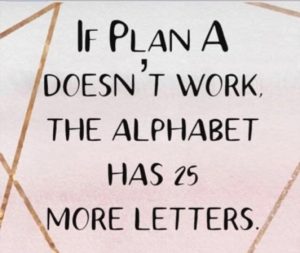“Setting an example is not the main means of influencing others; it is the only means.” ~Albert Einstein
It’s not always apparent to the leaders referred to me for conflict management coaching that their way of managing and engaging in interpersonal disputes is having an adverse influence on workplace unrest and tensions. They are often not aware as well, how staff in their organization contribute to this by modelling the leader’s way of interacting and creating their own tumult and deconstructive impact on the workplace. Referrals for leaders to shift their ways of being in conflict arise as a consequence of this and the systemic growth of conflict resulting in financial losses due to attrition, legal claims about harassment and bullying, the need for a range of costly interventions, and a poor reputation leading to clients choosing other services.
On the other hand, I am increasingly finding that leaders are self-identifying their challenges and seeking coaching – that is, coming to coaching of their own accord when, or even before, conflict problems are evident. Some are being proactive for the organization as a whole. They accept that conflict is inevitable and look to plan ways that conflict may be ‘normalized’. This might include developing integrated systems and processes to prevent unnecessary conflict and to manage necessary conflict. Leaders also pay attention to their own contribution, and accept that their influence is a critical component of the dynamics needed to build a culture of conflict competence.
The same leaders it appears, from my experience, are more apt to face their own symptoms that are keeping them from being conflict competent. For instance, they may be find their tempers are escalating and they are interacting in ways that shut people down or exacerbate the tensions; they might have been told their way of communicating is problematic – sharp, patronizing, critical and so on; they may be continually demonstrating defensive behaviour; they may refuse to listen and hear what is going on around them and so on. When leaders admit they have a responsibility to improve their way of managing conflict they stand a good chance of stopping the message they have previously sent that says ‘you are allowed to act like this too!’
This week’s Conflict Mastery Quest(ions) blog invites leaders and others, of course, to consider how you influence others by the way you engage in conflict – considering the ways you know you need improvement as to not negatively influence others.
- How might you describe the way conflict is managed in your organization?
- What works best now about how people in the organization generally manage conflict? What isn’t working?
- What conflict behaviours do you currently have that work well?
- What conflict behaviours do you yourself engage in that you know are counterproductive? From where do you learn and develop those particular behaviours?
- How does it feel for you when you are demonstrating those unproductive behaviours?
- What sort of fall-out have you experienced or observed by or among others as a consequence of interacting in the ways you described as counterproductive?
- If you have observed others interact in similar ways as you described about yourself, what is your impression of them?
- How might you describe the traits you would like to develop or strengthen – to be able to set an example of conflict competence – and which will positively influence others to model?
- Please consider one of those competencies at this time. Since you have a choice about how you interact, what do you think you need to do to consciously shift your way of communicating to develop that? How will that influence others when that becomes a trait of yours?
- What does it feel like to consider you are ‘at choice’ about how you manage conflict and with practice are able to strength your conflict competence?
- What else occurs to you as you consider these questions?
- What insights do you have?
#interpersonalconflict
#conflict
#coaching
#conflictcoaching
#conflictmanagementcoaching
#conflict management
#disputeresolution



 Recently, a coaching client (I’ll call her Jane) retained me after her attempt to mend matters between herself and her co-worker (I’ll call her Martha) was unsuccessful. Jane told me that the relationship seems to have deteriorated all the more since she initiated an unsuccessful conversation with Martha and it’s now having an impact on other team members.
Recently, a coaching client (I’ll call her Jane) retained me after her attempt to mend matters between herself and her co-worker (I’ll call her Martha) was unsuccessful. Jane told me that the relationship seems to have deteriorated all the more since she initiated an unsuccessful conversation with Martha and it’s now having an impact on other team members.